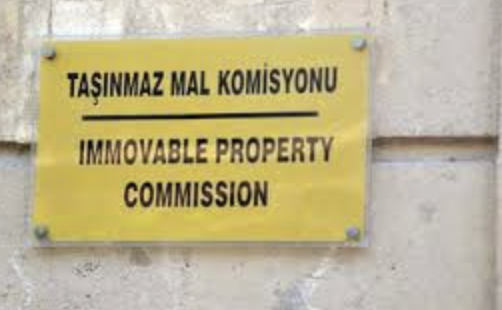The Immovable Property Commission in North Cyprus (IPC) was established under the Immovable Property Law (No. 67/2005) following the rulings of the European Court of Human Rights. Its primary objective is to provide an effective domestic remedy for claims associated with abandoned properties in Northern Cyprus.
Legal Recognition
The European Court of Human Rights, in its decision on 1 March 2010, affirmed the effectiveness of Law No. 67/2005. It dismissed complaints from applicants, citing the existence of a viable domestic remedy. The IPC’s procedures were deemed satisfactory and in compliance with the European Convention on Human Rights.
Commission Members
The IPC commenced its operations on 17 March 2006, with the appointment of its President, Vice-President, and members by the Supreme Council of Judicature. Candidates were nominated by the President of the Turkish Republic of Northern Cyprus. The IPC comprises esteemed individuals committed to upholding justice and fairness.
Eligibility Criteria
The IPC evaluates claims for restitution, compensation, and exchange in accordance with the provisions of Law 67/2005. Its decisions are guided by the principles of bizonality and bicommunality, integral components of past agreements and United Nations settlement plans. The IPC strives to address legitimate property claims while respecting the rights of the Turkish Cypriot Community.
Application Process
Individuals seeking remedies for property claims can submit applications to the IPC. Once lodged, claims are meticulously reviewed and assessed. As of March 2018, the Commission has processed a significant number of applications, resulting in both friendly settlements and formal hearings. Substantial compensation has been disbursed to deserving applicants, facilitating the resolution of longstanding property disputes.
The Immovable Property Commission stands as a beacon of hope for individuals seeking redress for property-related grievances in Northern Cyprus. With its adherence to legal principles, commitment to fairness, and dedication to justice, the IPC continues to play a pivotal role in facilitating the resolution of complex property disputes.
FAQs About the Immovable Property Commission (IPC)
1. What is the Immovable Property Commission (IPC)?
The Immovable Property Commission (IPC) is an institution established under the Immovable Property Law (No. 67/2005) in Northern Cyprus. It was created to provide an effective domestic remedy for property claims related to abandoned properties.
2. When was the IPC established?
The IPC officially began its operations on 17 March 2006, following the appointment of its President, Vice-President, and members by the Supreme Council of Judicature. This marked the commencement of its role in addressing property disputes.
3. What is the legal recognition of the IPC?
The European Court of Human Rights recognized the effectiveness of Law No. 67/2005 and affirmed the validity of the IPC’s procedures in its decision on 1 March 2010. This legal recognition validates the IPC’s role as a legitimate avenue for resolving property claims.
4. How does the IPC evaluate claims?
The IPC evaluates claims for restitution, compensation, and exchange in accordance with the provisions of Law 67/2005. It considers principles of bizonality and bicommunality, ensuring fairness and adherence to past agreements and United Nations settlement plans.
5. Who can apply to the IPC?
Individuals with property-related grievances in Northern Cyprus, including claims for restitution or compensation, can submit applications to the IPC. The Commission reviews each application meticulously to determine eligibility for remedies.
6. What is the application process for the IPC?
The application process involves submitting a claim to the IPC, after which it undergoes thorough review and assessment. As of March 2018, the IPC has processed numerous applications, resulting in both friendly settlements and formal hearings.
7. What role does the IPC play in resolving property disputes?
The IPC serves as a crucial mechanism for resolving complex property disputes in Northern Cyprus. By adhering to legal principles, promoting fairness, and facilitating remedies, the IPC contributes to the resolution of longstanding grievances.
8. Can applicants seek assistance from the IPC before other avenues?
Yes, applicants are encouraged to pursue remedies through the IPC before considering other avenues. The IPC offers a viable domestic remedy for property claims, as recognized by the European Court of Human Rights.
Streamlining the Application Process with the Immovable Property Commission
Submitting an application to the Immovable Property Commission (IPC) is a straightforward yet essential step in seeking remedies for property claims in Northern Cyprus. Understanding the procedure ensures a smooth and efficient application process, ultimately leading to the resolution of grievances. Here’s a comprehensive guide to navigating the application process:
1. Submission Methods
Applications to the IPC can be made either in person by the claimant or through a representative, typically a TRNC advocate. This flexibility allows applicants to choose the most convenient method for initiating the process.
2. Required Documents
To initiate an application, applicants must submit the following documents:
– Commission’s Application Form**: Applications must be submitted using the Commission’s designated application form, which adheres to the format laid down in the legislation.
– **Affidavit**: An affidavit, to be sworn at the Commission by the applicant or their representative, is a crucial component of the application. It must follow the prescribed format outlined in the legislation.
– **Additional Documentation**: Various supporting documents must be attached to the application, including:
– Photocopy of the property’s title deed, certified as a true copy.
– Photocopy of the property’s site plan, also certified as a true copy.
– Photocopy of the applicant’s passport or ID card, certified as authentic.
– Photocopies of company documents (if applicable), such as incorporation certificate, list of directors, and list of shareholders.
– Declaration from the village chief (muhtar) listing the legal heirs of a deceased property owner, if applicable.
– Power of attorney authorizing the representative to swear the affidavit, along with a photocopy of the representative’s passport or ID card.
– Retainer form signed by the applicant appointing the advocate (if applicable).
3. Certification Process
Certain documents, such as photocopies of essential identification and property-related papers, must be certified as true copies. Certification can be conducted either by a certifying officer or at the Commission when the application is submitted.
4. Submission Protocol
Once all required documents are compiled and properly certified, applicants can submit their application to the Commission. It is crucial to adhere to the prescribed format and guidelines to ensure the application’s acceptance and processing.
5. Legal Representation
Applicants have the option to appoint a TRNC advocate to represent them throughout the application process. In such cases, a retainer form signed by the applicant appointing the advocate is necessary.
By following these procedural guidelines, applicants can streamline the application process and ensure that their claims are accurately and efficiently processed by the Immovable Property Commission.
For more information and legal assistance, consult with a trusted TRNC advocate familiar with the IPC’s
procedures.


